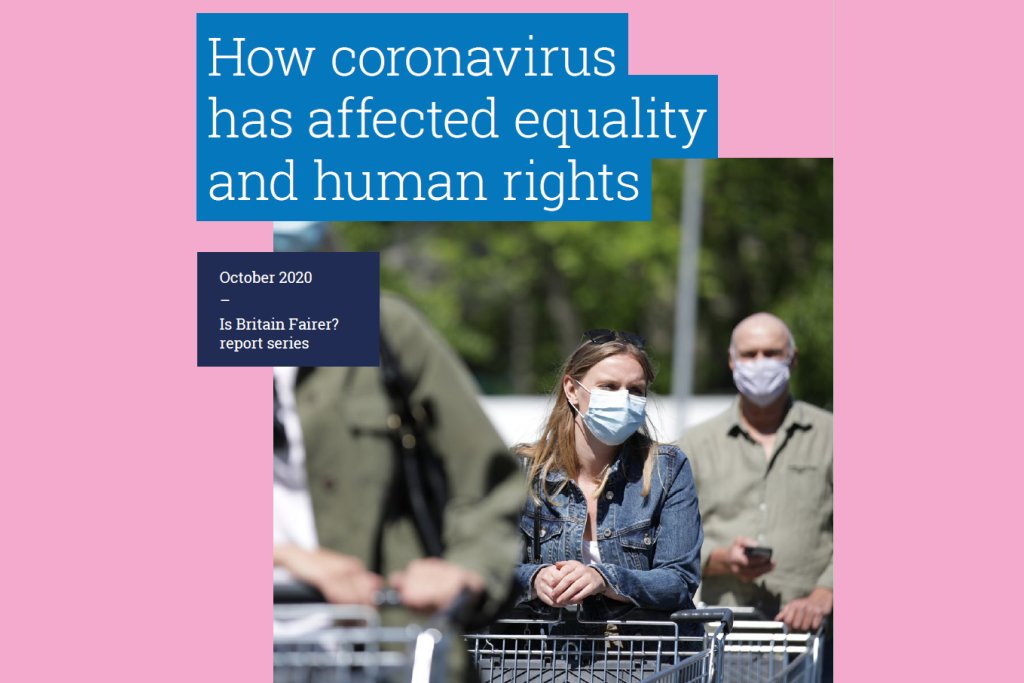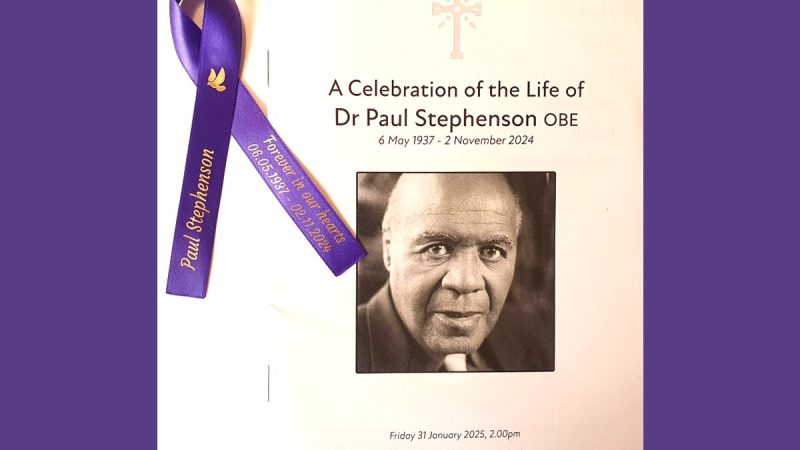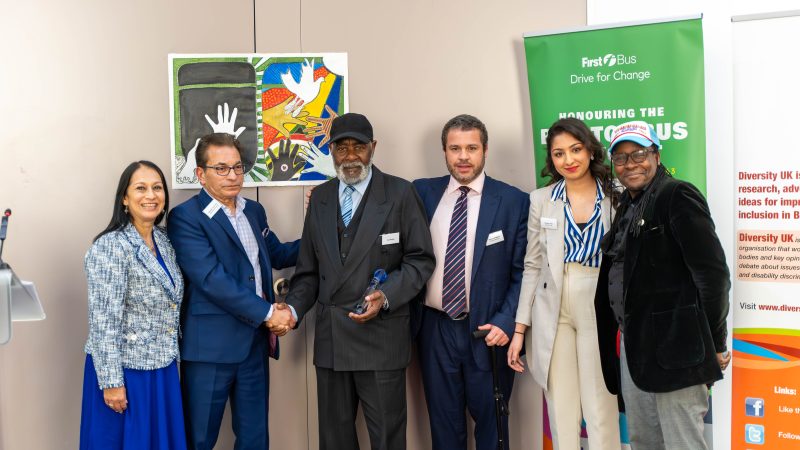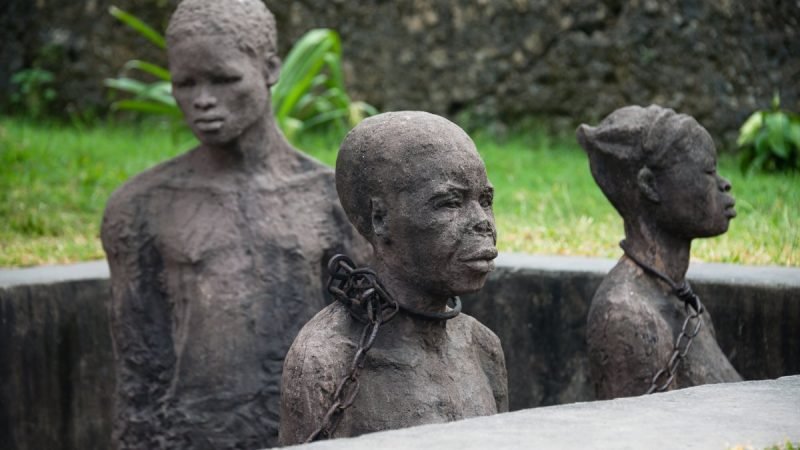Human rights at risk of going backwards in wake of pandemic

Hard-won equality and human rights are at risk of going backwards with clear and long-lasting damage to society and the economy as a result of the coronavirus (COVID-19) pandemic, recent analysis by the Equality and Human Rights Commission (EHRC) has revealed.
Its latest report, ‘How coronavirus has affected equality and human rights’, brings together a wealth of evidence exposing the impact of coronavirus across key areas of life and the hardship faced by people who already face disadvantage. In particular it has identified concerning backwards trends both for young people and for our care system, and has highlighted just how entrenched racial inequality is in our society.
As the country looks to 'build back better', we have called for equality and human rights to be put at the heart of recovery strategies, so that long-standing concerns and deep rooted inequalities can be tackled once and for all.
Caroline Waters, Interim Chair of the Equality and Human Rights Commission, said:
“In the early days we said that coronavirus did not discriminate. However, the virus has torn through our lives exposing stark inequalities which show that ultimately, the outcomes it creates, do. We cannot afford for inequality in our society to become further entrenched. And as we learn to live with coronavirus and look to re-build our society, we have to strike a difficult balance between making sure that lives are protected, but also protecting the hard-won freedoms that are the hallmark of life in Britain.
“Young people risk becoming the lost generation, and older people becoming marginalised and isolated, as we have watched education and care homes being dealt a heavy blow. And the disproportionate impact of the virus on ethnic minorities, coupled with global protests, has shone a light on racial inequality like never before. This is just the tip of the iceberg. We are yet to see the effect on access to healthcare for other life-threatening conditions, such as cancer, or what the long term economic effects mean for different protected characteristics, such as women.
“The pandemic has painfully exposed the fragility of the gains that we’d made towards becoming a fairer and more prosperous society. As we look towards the future and consider what our ‘new normal’ may look like, we have to decide what sort of a society we want to become. This is an opportunity to put equality and human rights at the heart of our recovery, politically and economically, so that we have a strong foundation at the core of everything we do. Not only would this cement necessary protections in everyone’s lives, but it could help prevent those who are most vulnerable having to bear the brunt of adversity in the future.
Our latest report provides a snapshot of the emerging impact of the pandemic."
Racial inequality
The negative effect on people from different ethnic minorities is evident as many have faced a perfect storm of being both more likely to die from the virus and more likely to experience financial hardship as a result of the pandemic.
Certain ethnic minority groups, such as Bangladeshi, Black African and Pakistani people, are already closest to the poverty line and are more likely to be affected by the rise in poverty. This is expected to worsen when the Government support schemes come to an end, triggering further hardship.
Some ethnic minority groups, such as Pakistani, Bangladeshi and Black African / Caribbean people, are at greater risk of unemployment, than White people. We have called for mandatory monitoring and reporting by employers on the recruitment, retention and progression of ethnic minority groups, with time-bound, target driven action plans to address the factors creating pay and employment gaps.
We have already indicated that we are concerned about the disproportionate impact of coronavirus on different ethnic minorities. We are currently scoping an inquiry to develop clear, evidence-based recommendations for urgent action to tackle entrenched racial inequalities in a specific area.
Young people
Having experienced a significant interruption to their education, being at high risk of job losses and with reduced career options stalling their prospects, young people are in danger of becoming a “lost generation” as a result of the pandemic.
In 2018, our ‘Is Britain Fairer?’ report showed that attainment at primary and secondary school was improving across Great Britain. Those gains are now likely to be negatively affected by school closures, differences in home learning and in access to technology. Compounded by the attainment gap already prevalent for boys, some ethnic minority groups, pupils with SEND and those who are socio-economically disadvantaged, there are fears these groups could fall further behind.
Given the economic consequences of the pandemic, there is an additional risk that increasing levels of poverty for certain groups may further affect educational attainment and long-term prospects. Without action, this could result in potentially severe and long-lasting damage for young people. We have asked Governments to support schools to develop catch-up and recovery plans to meet the needs of pupils affected and report within six months on the progress and outcomes of these plans.
Social care
The coronavirus pandemic has devastated the care sector. Not only has it disproportionately affected older people, some ethnic minority groups and disabled people living in care homes, but morale among care sector staff is low as workers face an increased risk from the virus, lack of recognition and staff shortages. The financial repercussions from the pandemic are likely to exacerbate inequalities in the sector for some time to come.
In the UK at least 40% of COVID-19 deaths to date have been amongst care home residents. However, the impact stretches beyond mortality, as lockdown measures have left care home residents isolated from their family and friends, with significant effects on their mental health.
We have asked the UK Government to carry out an urgent review of deaths in care homes. We have also reiterated the need to find a balance between protecting the lives of older people, whilst protecting their other rights, especially to a private and family life, by building equality and human rights considerations into the ongoing response to the virus.
This report is a first step in summarising available evidence to help understand the effects of the pandemic on different groups in society, and the potential risks to equality and human rights in the longer term.
Click here to download a copy of the EHRC 'How coronavirus has affected equality and human rights' report.




